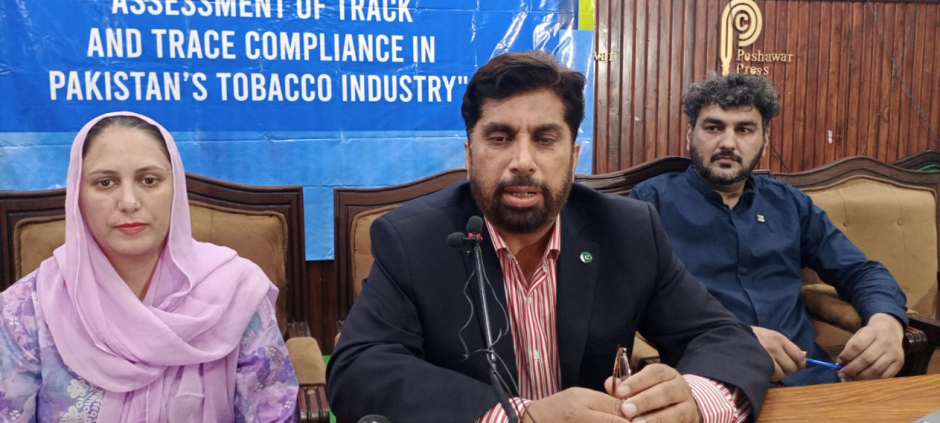Peshawar – The Institute for Public Opinion Research (IPOR) has launched its study highlighting the alarming spread of illicit across Pakistan. Tax evaded and smuggled cigarette brands are being sold openly across the country. The report was officially unveiled today in Peshawar by Tariq Junaid, Executive Director of IPOR.
According to the findings, over 54% of cigarette brands available in the Pakistani market are non-compliant with local laws, including the Track and Trace System (TTS) and the mandatory Graphical Health Warnings (GHWs) regulations. The study, which surveyed 1,520 retail outlets in 19 districts, discovered a total of 413 cigarette brands. Shockingly, only 19 of these were fully compliant with the TTS, while 286 brands lacked both tax stamps and the required health warnings.
Also Read: FBR Seizes Untaxed Cigarettes Valued At Rs. 140 Million
“Despite clear regulations introduced as early as 2009 for Graphical Health Warnings and the 2022 rollout of the Track and Trace System, compliance remains severely low,” said Junaid. “This points to an urgent need for enforcement.”
Of the non-compliant brands, 45% were smuggled into the country, and 55% were locally manufactured without payment of due taxes. The report further reveals that 332 brands were being sold below the legal minimum price of Rs. 162.25, with some available for as low as Rs. 40. This not only violates pricing regulations but also results in massive tax evasion and revenue loss for the government.
The data highlights a stark rural-urban divide in enforcement, with non-compliance reaching 58% in rural areas compared to 49% in urban areas. This demonstrates the need for targeted crackdowns and more robust monitoring mechanisms, especially in rural regions.
“There appears to be a complete lack of fear among shopkeepers when it comes to selling illicit cigarettes,” added Junaid. “We request the government to implement strict point-of-sale checks and take enforcement actions to curb illegal trade.”
IPOR urges authorities to prioritize enforcement and enhance regulatory mechanisms in order to recover critical national revenue lost to illicit cigarette trade and create a level playing field for businesses.











